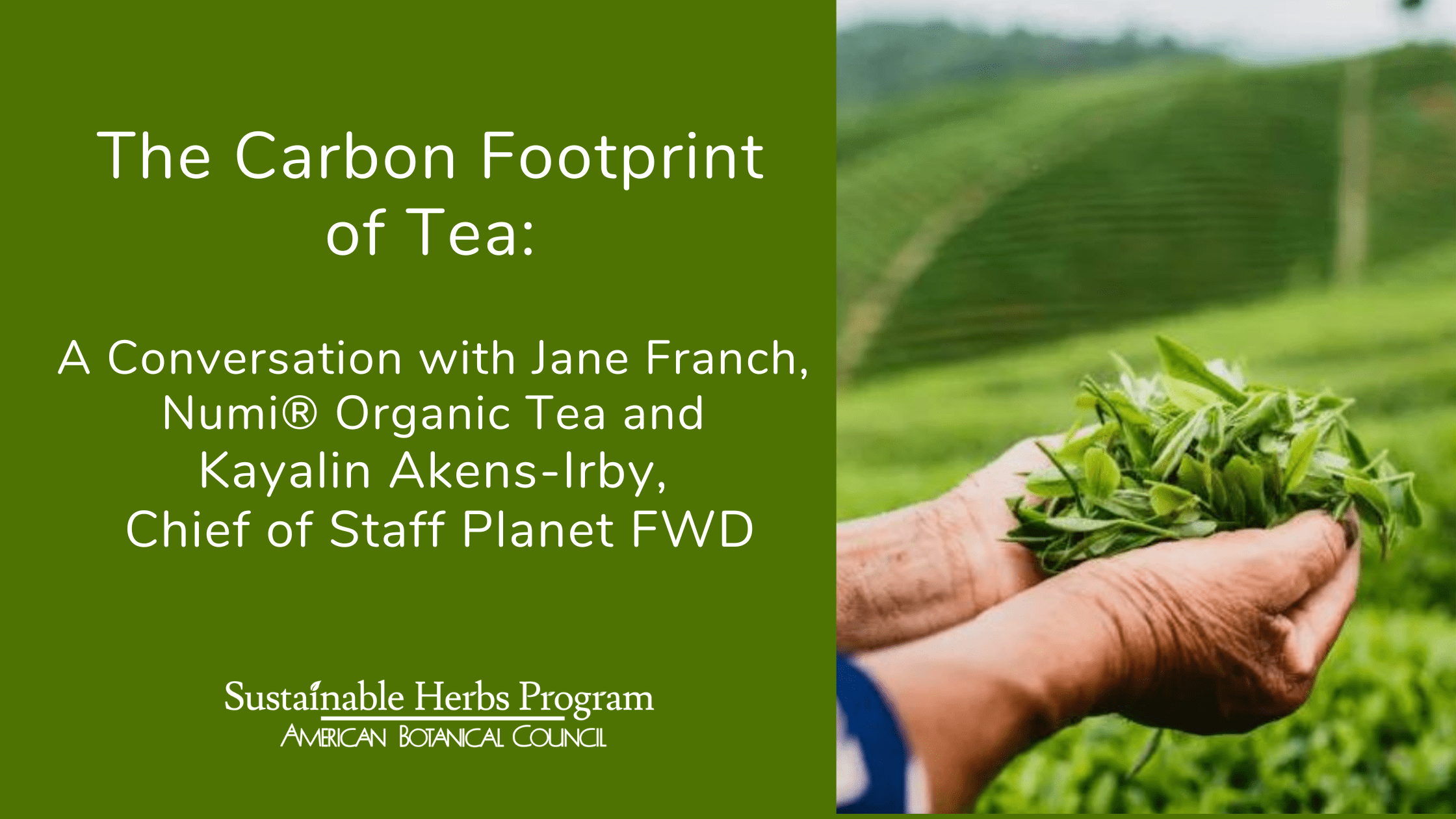The Carbon Footprint of Tea
by Ann Armbrecht, SHP Director
I am not an expert on measuring carbon. I don’t know what the tools are, what they do and do not measure, and what to look for as a company or a customer trying to decide what claims about carbon impacts to trust. In this conversation, Jane Franch, Vice President of Strategic Sourcing & Sustainability at Numi Organic Tea, and Kayalin Akens-Irby, Chief of Staff at Planet FWD, laid this and more out clearly and with depth. They both emphasize the importance of getting accurate data on carbon emissions as a foundation for taking action to reduce those emissions. The webinar is a great resource for newcomers and those with more experience trying to understand the current landscape of measuring and labeling carbon emissions and why this work is so important.
To see previous SHP Webinars, go here.
Listen to the entire webinar here:
A few key takeaways:
- The importance of getting accurate information on your carbon emissions so that you can make smart decisions about where to invest to reduce those emissions. Both Jane and Kayalin spoke about the risk of the free tools that are available. Jane mentioned one free estimator that said that Numi’s emissions based on their operation was ¼ of what their emissions actually are. “Proceed with caution,” she advised.
- It is important to know what is being measured in order to understand what the information means, either the information on a label or the information that a tool offers a company about their emissions. Jane and Kayalin explain this quite clearly in the excerpt below, “Tools for Measuring Climate.”
- There is evidence that consumers will purchase products that demonstrate a clear commitment to measuring and reducing their climate impact. Find out more in Kayalin’s comments, “The Business Case for Carbon Labeling.”
- As a customer looking for accurate labeling, make sure you understand the scope of what is being measured, is it from cradle to grave? Are certain steps not included? And make sure there is a system of third-party auditing to assess the accuracy of the claims on the label.
- And in one the most moving moments of the webinar, in “Why Acting on Climate Matters,” Jane talks about why ethical brands that are committed to responsible sourcing must find ways to address this challenge.


Comments